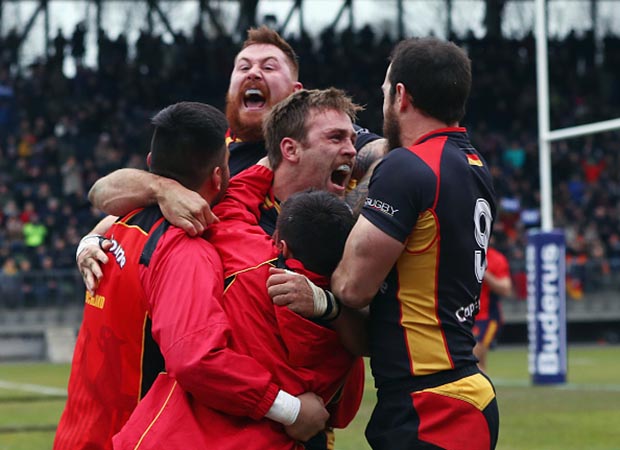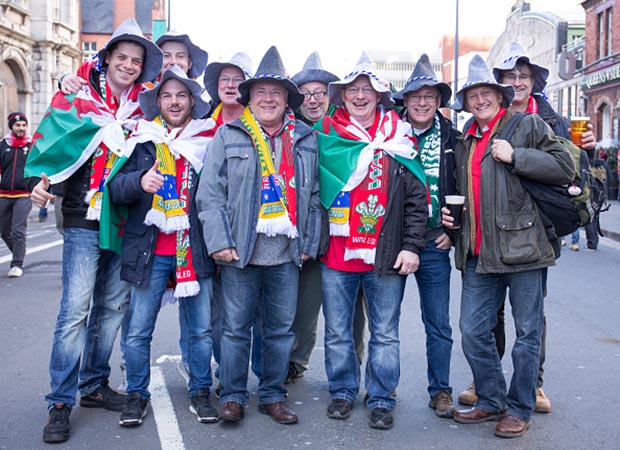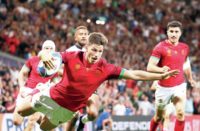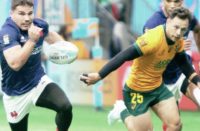 So suddenly Germany are ranked 23rd in the world, hard on the heels of recent World Cup qualifiers Namibia and Uruguay and born-again hopefuls Spain, although as with most ‘sudden improvements' years of hard work, graft and dreaming lie at the heart of the story.
So suddenly Germany are ranked 23rd in the world, hard on the heels of recent World Cup qualifiers Namibia and Uruguay and born-again hopefuls Spain, although as with most ‘sudden improvements' years of hard work, graft and dreaming lie at the heart of the story.
A recent run including a 50-27 dismantling of Portugal, a draw with Spain, an historic first ever victory over Uruguay and an autumn double over Brazil have sent Germany rocketing up the world rankings ahead of an important European Nations campaign which starts in the New Year.
Germany just managed to avoid relegation during the 2014-16 tournament, at the expense of Portugal, but with Georgia hell-bent on becoming a T1 nation, Romania striving to regain lost glories, Russia intermittently strong and Spain on the rise, a challenging two years beckons.
Germany and Belgium – the latter no pushover with their increasing number of dual-qualified French players – have it all to do but it's funny how much can be achieved when a side pick up a little momentum.
It is that victory over Uruguay in the first of their three autumn internationals that really encourages thoughts that German rugby might be poised to step up to a new level. The score was a close looking 24-21 but in reality the Germans dominated proceedings and should have been home and hosed long before young fly-half Chris Hilsenbeck landed a 40-metre penalty with the last kick of the game to atone for a host of wayward shots at goal earlier in the game.
It was a very decent win in front of a good 8,000 crowd in the first German international game ever televised live on German TV. That can't have done any harm and, much encouraged, German TV came back for more and took live coverage of Germany's second win over Brazil.
So far so good, but Germany's South African coach Kobus Potgieter knows the hard work is only just beginning.
“It's been a good little period for German rugby but here is still a mountain to climb even to stay in the European Nations competition let alone to start truly competing for that title,” says the no-nonsense Potgieter who travelled to Germany ten years ago to help coach young players and liked it so much he stayed.
 “Time together is short and always an issue but at least this autumn, for the first time we enjoyed a full autumn together, three weeks all under one roof preparing for three Test matches and for once we had just about all our full squad available. That was brilliant, we got so much work done and could get into that rhythm of going from game to game which is so important.
“Time together is short and always an issue but at least this autumn, for the first time we enjoyed a full autumn together, three weeks all under one roof preparing for three Test matches and for once we had just about all our full squad available. That was brilliant, we got so much work done and could get into that rhythm of going from game to game which is so important.
“Outside of the European Nations matches we play so very little Test rugby and there is always that feeling of starting from scratch before every tournament but this time we have some good game time and training sessions under our belt. One or two of our players might be unavailable come February but our preparation already has been better and I am also getting the German-based players together for mini camps in the New Year.”
Germany, when at full strength, have a useful core of players. Castres prop Damien Tussac is possibly their star turn; a huge man at 6ft 4in and
20st who some Leeds Carnegie supporters will recall from his time playing Championship Rugby for them. There are at least two other German props playing a decent level in France – Samy Fuchsel at Albi, Julius Nostad at Chambery while lock Erik Marks is based at La Rochelle.
Another second row Michael Poppmeier – South African born and raised but a long time stalwart of Heidelberger – is an influential player as is another South African-raised tight forward, Jaco Otto, who has returned to the land of his fathers.
Scrum-half Sean Armstrong, above, born and reared in Australia but qualified through his mother, is normally the captain but has been a long term injury victim recently, although he is expecting to return in time for the European Nations opener against Romania. Elsewhere centre Clemens Van Grumbkow is the key to their midfield, Hilsenbeck is picking up valuable experience with Colomiers and Sharks U21 centre Marcel Coetzee down in Durban is considered one for the future.
“We face all the problems that those nations towards the bottom of T2 status tend to face,” continues Potgieter. “The step up from our domestic league to Test rugby is considerable and quite difficult but at the same time we don't want to see all our better young players automatically disappear across the border to France because we are trying to grow our own game.
“Also like some other nations we do have some good players dotted around the world with strong German qualifications but we have to be careful how we tap into that.”
Potgieter is not wrong there. Fanciful thinking perhaps but Chris Robshaw, George Kruis and Juan Imhoff, to name but three, could all theoretically have qualified to play for Germany had the mood ever taken them through their heritage.
 “We know there are some German qualified players out there through their parents or grandparents but it's tricky. We can't offer financial reward and the commitment required to make yourself available for games, to drag yourself away from the club that pay your wages, is considerable.
“We know there are some German qualified players out there through their parents or grandparents but it's tricky. We can't offer financial reward and the commitment required to make yourself available for games, to drag yourself away from the club that pay your wages, is considerable.
“So in this respect we are not particularly proactive, we don't want to try and run before we can walk. We recruit very much by word of mouth and slowly to make sure the guys understand what the situation is and the level of commitment required. I won't contemplate any such player being picked above a German-based player unless the total commitment is clear for everybody to see.”
Potgieter also faces a dilemma over the coming two-year campaign as to how to deploy his growing, but still small compared with most, senior group of players. At present Germany are no more likely to beat Georgia in Tbilisi than the Georgians are likely to defeat New Zealand in Auckland. Ditto the away trip to Romania is a game that realistically they are extremely unlikely to win.
So that throws up the question for a coach whose priority is retaining their EN1 status. Which is more important, getting your strongest team on the park for matches against the likes Belgium and Spain where there is a fighting chance of a result or being at full strength for the prestigious fixtures against much stronger opposition.
“As a coach I always want to win every game and its the same with players but we are at that difficult transitional stage when in the back of our minds we have to be realistic. That doesn't mean to say we can't be positive and aggressive in the matches against the strongest opposition but the mindset has to be different. In these games we must be as resilient and stoical as possible and be prepared to soak it all up and learn every single lesson we can when we are on the pitch.
“As a team we have already had to change and adapt massively in a short time. At EN2 level we had a dominant pack and that sets the tone. You either win through your pack or the pack consistently puts you on the front foot and you take it from there. But then when you move into EN1 the difference between our pack and, say, Georgia or even Romania and Russia is pretty wide and takes some bridging. So we have found ourselves consistently on the back foot which means we have to modify our approach considerably and we need to find a way of using our possession better.”
There is a lot for Germany to take on board, especially as they are also determined to step up their Sevens programme which might encourage the German Olympic Association to come in with more support. Qualification for the 2017-18 Series as a core team – which would mean winning the 12-team qualifying tournament in Hong Kong – is their main aim but there is a considerable cross over between their best fifteens player and Sevens exponents. There are going to be a lot of very tired German rugby players by the end of the season.


























